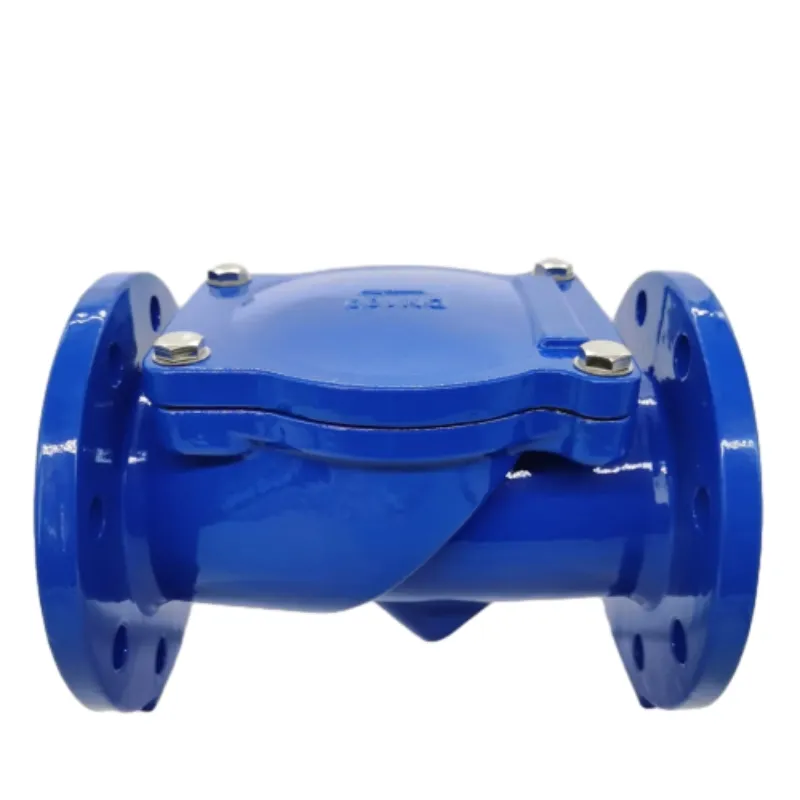ನವೆಂ . 10, 2024 21:00 Back to list
Optimizing Water Flow with Advanced Control Valves for Enhanced Efficiency and Performance
Water Flow Control Valves Essential Components for Efficient Fluid Management
Water flow control valves are pivotal devices in various industrial and residential applications, playing a fundamental role in managing the flow of water or other fluids within a system. These valves help regulate the amount of fluid that passes through pipes, ensuring that processes run smoothly and efficiently, while also contributing to safety and cost-effectiveness. This article delves into the types, functionalities, and significance of water flow control valves.
Types of Water Flow Control Valves
There are several types of water flow control valves, each designed for specific applications. The most common types include
1. Gate Valves Gate valves are typically used for on/off control. They work by raising or lowering a gate within the valve body, allowing or stopping the flow of water. While they are suitable for isolation, gate valves should not be used for throttling purposes, as they can lead to erosion and damage.
2. Globe Valves Designed primarily for throttling, globe valves have a spherical body shape and an internal baffle that helps control flow rates. They provide excellent regulation and are ideal for maintaining precise flow control in systems requiring more than just on/off functionality.
3. Ball Valves Ball valves utilize a spherical disc to control fluid flow. They are known for their durability, reliability, and quick operation. Ball valves can be fully open or closed, providing a tight seal when closed, which makes them suitable for both isolation and flow control in various applications.
4. Butterfly Valves Butterfly valves consist of a disk that rotates around a central axis. They are lightweight and offer quick operation, making them suitable for large-scale water distribution systems. While they are efficient for on/off control, they can also be used for throttling flow.
5. Check Valves These valves are designed to allow fluid to flow in one direction only. They prevent backflow, which can be critical in systems where reverse flow might cause contamination or damage to equipment.
Functions and Applications
The primary function of water flow control valves is to manage fluid dynamics within a system. They ensure that the correct amount of water flows to various components, protecting pumps and other machinery from potential damage caused by excess pressure or flow. Applications range widely, including
water flow control valve

- Irrigation Systems In agriculture, flow control valves ensure optimal water distribution to crops, promoting efficient use of resources while preventing wastage. - HVAC Systems In heating, ventilation, and air conditioning systems, these valves regulate water flow to maintain desired temperatures and enhance comfort within buildings.
- Industrial Processes Many manufacturing applications rely on precise flow control of water and other fluids in processes such as cooling, mixing, and chemical reactions
.- Municipal Water Supply Water control valves are used in municipal systems for distribution networks, ensuring that water is delivered effectively and safely to homes and businesses.
Advantages of Using Water Flow Control Valves
Employing flow control valves in water systems brings several advantages
1. Improved Efficiency By regulating flow, these valves optimize water usage, reducing waste and lowering operational costs.
2. Enhanced Safety Control valves help prevent situations such as water hammer or overpressure, which can lead to pipe bursts and costly repairs.
3. Versatility These valves are suitable for a range of fluids and pressures, making them adaptable to various system requirements.
4. Longevity of Equipment Proper flow control helps in reducing the wear and tear on pumps and pipelines, ultimately extending the lifespan of the entire system.
Conclusion
Water flow control valves are indispensable in modern fluid management systems, facilitating not just the control of water flow but also enhancing the overall efficiency and safety of various applications. Understanding the types and functions of these valves is essential for anyone involved in design, maintenance, or operation of water systems. By incorporating the appropriate valve for specific needs, users can optimize their systems, ensuring a dependable and efficient supply of water across numerous industries.
-
Why Metric Trapezoidal Thread is Ideal for Precision Motion ControlNewsAug.05,2025
-
The Unique Properties of a Block of Granite for Industrial UseNewsAug.05,2025
-
The Role of Flanged Y Strainers in Preventing Pipeline ClogsNewsAug.05,2025
-
The Importance of Regular Calibration for Master Ring GagesNewsAug.05,2025
-
How a Cast Iron Surface Table Enhances Accuracy in ManufacturingNewsAug.05,2025
-
Comparing Different Check Valve Types for Optimal Flow ControlNewsAug.05,2025
Related PRODUCTS









